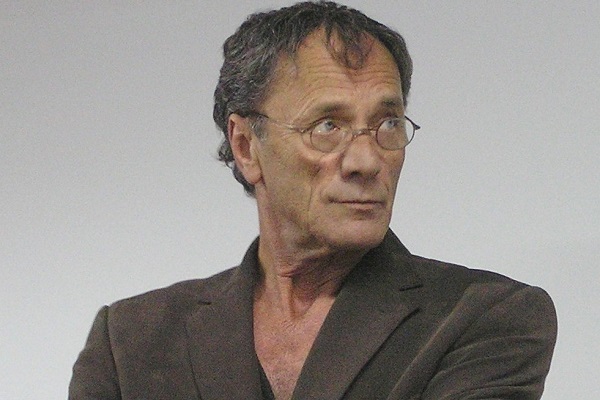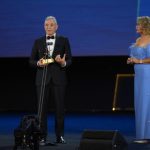Bakri said he doesn’t hold festival organisers responsible, but hoped the management will seek to find out who is behind the deportation.
Palestinian actor-director Mohammad Bakri, known for his on-screen work in Homeland, Wajib, and The Stranger, has cancelled his visit to El Gouna Film Festival, citing the country’s decision to deport UK-based Palestinian filmmaker Said Zagha from the country.
Bakri was due to be honoured with a career achievement award at the festival on October 20. Said Zagha had been invited to El Gouna to present his upcoming film Weedestine at the festival’s CineGouna Springboard platform.
However, on October 19, Bakri released a statement in Arabic saying he has cancelled his visit in protest against the deportation of Zagha and other Palestinians who arrived at Cairo airport and were barred from entering Egyptian territory.
In his statement, Bakri said: “I have decided not to go to the El Gouna Film Festival. Essentially, this was a reaction, in principle, to the mistreatment of Palestinian artists, regardless of their passport, whether it’s Jordanian, Palestinian, Israeli, or whatever. It is high time that Palestinians are granted full rights, like the rest of the world. This doesn’t only apply to Palestinian artists. I’m referring to all Palestinians.”
He added: “I’ve seen my people stranded in airports all over the world, but especially in Arab countries, under the mercy of [an airport] official. I’ve seen starved children with their parents, laying on the floors of airports. Sometimes they have to wait for days – not just one or two. I call on all authorities in the world, but especially Arabs, it’s enough. We’ve had it! I’m doing this to protest what happened with me previously and what happened with Ali Suliman as well. I’m also doing it to protest what happened with Said Zagha recently, who was detained for twelve hours and humiliated at the Cairo airport, and eventually deported. Although this was the last straw for me, my objection is in more general terms. I’m objecting on behalf of every Palestinian in this world.”
“The management of the El Gouna Film Festival did not spare any efforts. They promised me that everything would be sorted out upon my arrival [at an Egyptian airport]. But if you’ve been bitten before, you tend to be cautious, lest it happen again. Do you know what I mean? I did not want to take the risk,” Bakri noted. “I respect the people who are in charge of the festival and I respect the festival’s decision to pay tribute to my work. There is no disagreement on this. However, these people [the festival’s management] do not have the jurisdiction to protect and respect their Palestinian guests. They have no power over port authorities. Maybe they shouldn’t invite people in the future and spare them the humiliation.”
“Again, I commend and respect the festival’s management. I thank them for their tribute,” Bakri added. “But this is beyond their means. I thank [festival director] Intishal al-Timimi, who is also a friend. This is not a sleight against him personally or the festival’s creative team. This is directed at the official – whom the festival should know. Who is rejecting our entry [into Egypt], regardless of our type of passport? Whether it’s me, Ali Suliman, or [Said] Zagha, the festival management should know who is responsible. If it’s not the festival, then who is it? Who should we accuse?”
Bakri won the Arab Critic Award at Cannes and best actor at the Dubai International Film Festival for his role in Wajib (2017).

















































































